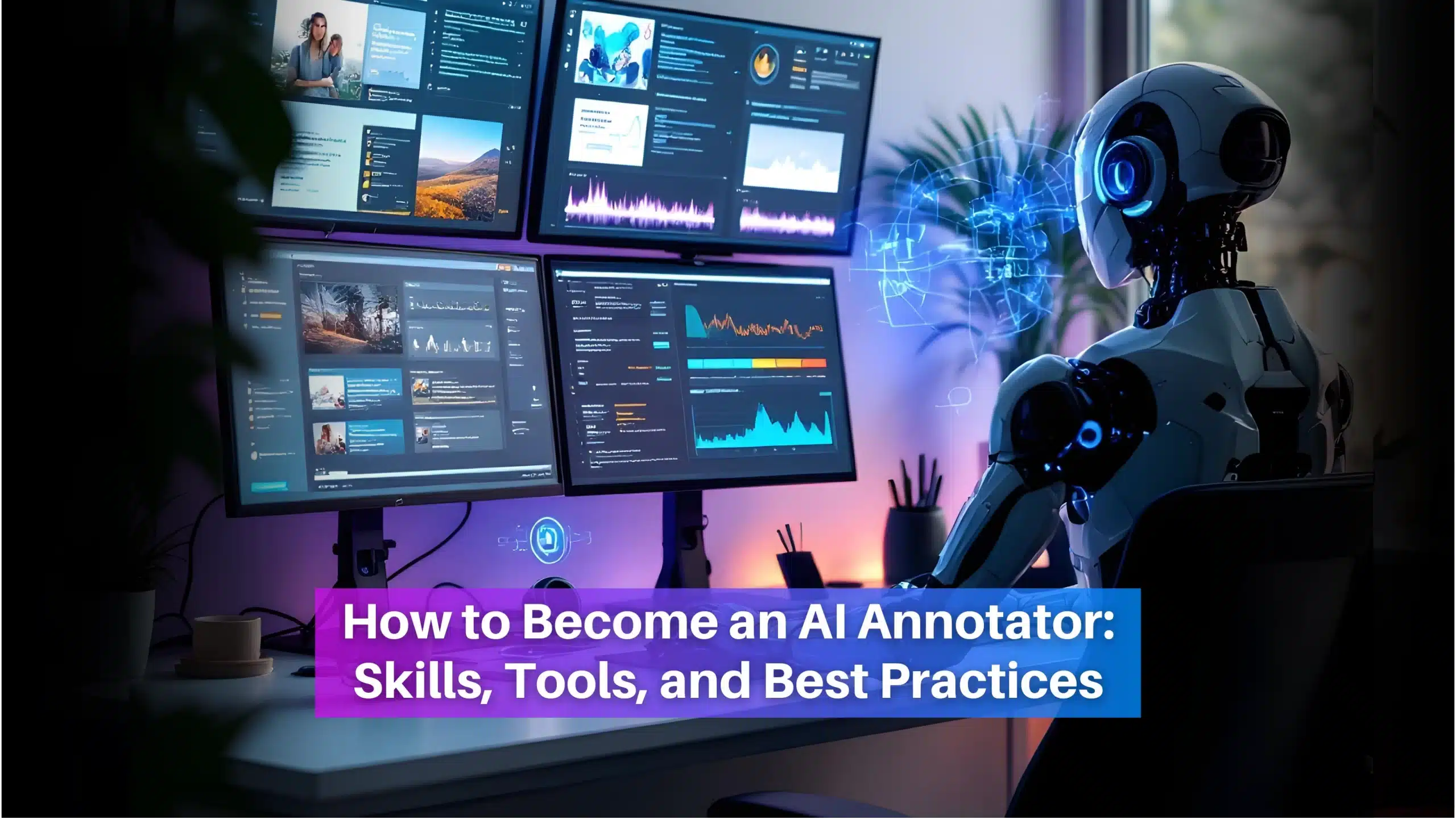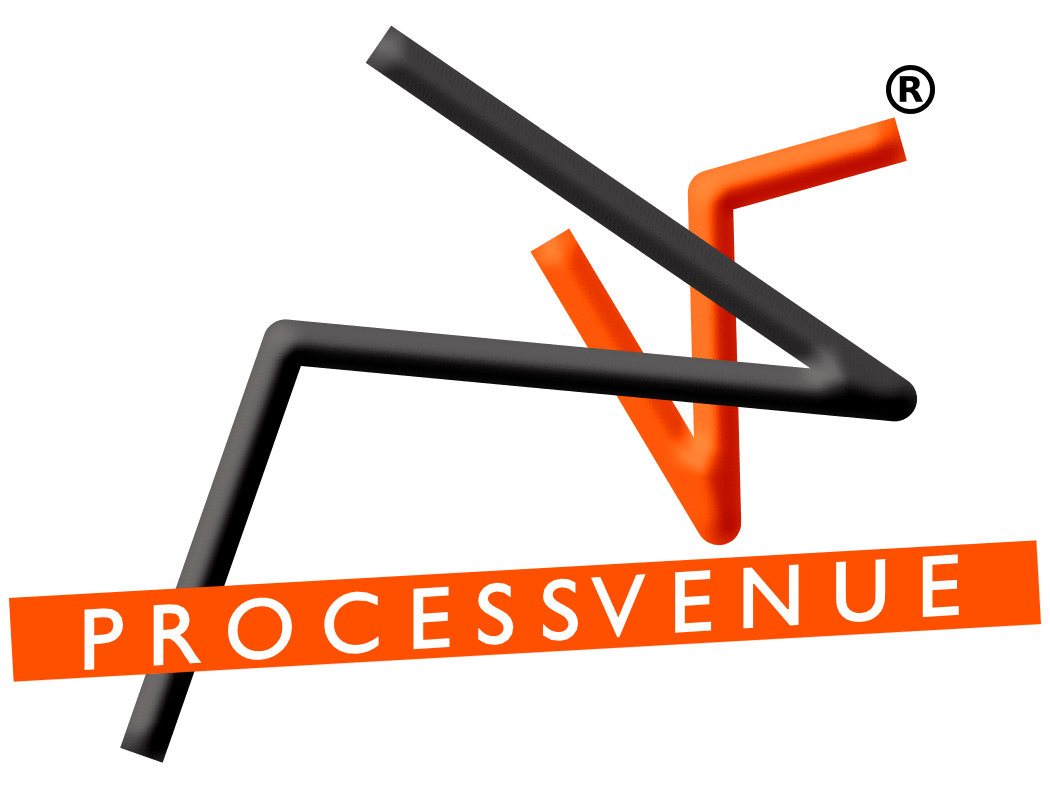
How to Become an AI Annotator: Skills, Tools, & Best Practices
|
Getting your Trinity Audio player ready...
|
Artificial Intelligence (AI) is revolutionizing industries, and at its core lies data annotation—the process of labelling data to train AI models. Becoming a Data Annotator is an exciting career path for those looking to contribute to the AI community. This blog explores the essential skills, tools, and best practices for succeeding as an AI annotator while emphasizing the importance of quality training data in AI projects.
1. What is Data Annotation?
Data annotation involves labelling raw data—images, text, audio, or video—to make it understandable for machine learning models. It’s the backbone of AI development, enabling models to learn patterns and make predictions. For example:
- Annotating medical images to help AI detect diseases.
- Labelling traffic signs for autonomous vehicles.
- Categorizing customer reviews for sentiment analysis.
Without high-quality annotated data, AI models cannot perform effectively.
2. Key Skills for Data Annotators
To excel as a data annotator, you need a mix of technical and soft skills:
Hard Skills:
- Attention to Detail: Precision is critical; even minor errors can lead to inaccurate training data
- Technical Proficiency: Familiarity with annotation tools like CVAT, Labelbox, or Picsellia is essential.
- Basic Programming Knowledge: Skills in Python or SQL can help automate repetitive tasks and manage datasets efficiently
- Domain Expertise: Specialized knowledge in healthcare or finance can improve annotation accuracy for industry-specific projects.
Soft Skills:
- Critical Thinking: Ability to analyse complex scenarios and make informed decisions about annotations
- Time Management: Meeting deadlines without compromising quality is crucial
- Communication Skills: Collaborating with teams and clarifying project guidelines ensures consistency.
3. Best Practices for Data Annotation
Mastering data annotation requires strategic planning and adherence to best practices:
Define Clear Objectives
- Understand what the AI model needs to learn.
- Identify the type of data (text, image, audio) required for the task.
Develop Annotation Guidelines
- Create detailed instructions to standardize labelling practices across teams.
- Use pilot projects to test workflows before scaling up.
Leverage Automation
- Use AI-assisted tools for repetitive tasks like bounding boxes or keyword tagging.
- Combine machine pre-labelling with human validation for better accuracy.
Quality Assurance
- Implement rigorous review processes to ensure annotations are consistent and error-free.
- Use dashboards to monitor annotator performance and flag potential issues
Iterate Continuously
- Refine guidelines based on feedback and challenges encountered during annotation projects.
Why Data Annotation Matters in AI
High-quality annotated data is vital for creating reliable training datasets that power AI applications across industries:
- In healthcare, annotated medical scans enable early disease detection
- In autonomous driving, labeled road scenes help vehicles navigate safely.
- In customer service, sentiment analysis improves chatbot responses.
As the demand for AI grows, so does the need for skilled annotators who can transform raw data into actionable insights.
Conclusion
Becoming a data annotator is your chance to step into the exciting and ever-evolving world of Artificial Intelligence. It’s not just about labelling data—it’s about being part of a global movement that powers cutting-edge technologies like self-driving cars, virtual assistants, and medical breakthroughs. By mastering the right skills, leveraging advanced tools, and following best practices, you can position yourself as an indispensable contributor to the AI community.
But here’s the thing: high-quality data annotation requires expertise, precision, and scalability. That’s where ProcessVenue comes in. With our industry-leading solutions in AI and Machine Learning, we provide businesses with meticulously annotated training data that fuels innovation and drives results. Whether you’re a company looking to accelerate your AI projects or an aspiring annotator seeking insights into professional workflows, ProcessVenue has you covered.
Ready to unlock the full potential of your data? Visit ProcessVenue’s AI and Machine Learning offerings today and discover how we can help you transform raw data into actionable intelligence. Let’s build the future of AI—together!
FAQs
Do I need programming skills to become a data annotator?
While basic programming knowledge (e.g., Python or SQL) can be helpful for automating tasks, it is not mandatory. Familiarity with annotation tools like Labelbox or CVAT and attention to detail are more critical.
How does a data annotator handle ambiguous data?
For unclear cases:
- Refer to the project’s guidelines for clarification.
- Consult with team members or supervisors if needed.
- Document your decisions for future reference.
How does one ensure the quality of the annotations?
Follow these steps:
- Adhere to detailed annotation guidelines provided by the project team.
- Use automated validation tools to catch errors early.
- Perform regular quality checks and peer reviews.
